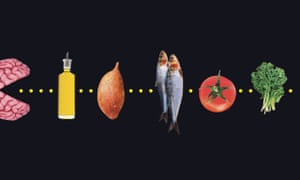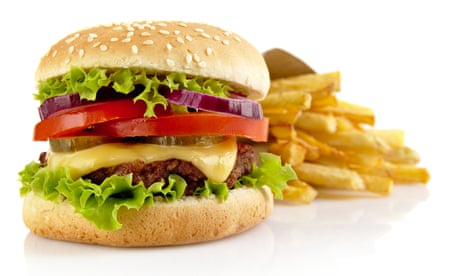The most compelling reason to eat healthy foods is the correlation between good nutrition and well-being. Coupled with regular exercise, eating a diet rich in whole foods and grains, healthy oils and low in sugar and salt, has been shown to convey a number of benefits. These include a longer life with less pain and suffering, less risk of back pain or muscular problems and even an increased libido... read more at theconversation.comeAs important as our physical wellbeing is the effect of what we eat on on our brain.
Neuro-scientist Lisa Mosconi works at the Alzheimer’s Prevention Clinic at Weill Cornell Medical College, New York, in this article she explains the importance feeding our brains:
Back when I started, most of my time was spent with medical journals. But 15 years into my research, much of my time is spent with cookbooks.Lisa explains that MRI scans have helped them to understand how eating different foods affects our brains. Some foods serve to protect the brain and shielding it from harm. However, some foods have a negative effect on our brain functions and eating these foods increases the risk of cognitive decline.
These books are essential to contemporary brain science. The recipes become food, and that food shapes our brains just as surely as it builds our bodies.
Our brain cells are irreplaceable. Unlike the rest of the body, where cells are continuously replaced, the vast majority of brain cells stay with us for our entire lives – which means they are in need of extra care and nourishment.
Lisa says:
While the blueprints for an individual brain do depend in part on DNA, recent discoveries have led neuroscientists to understand that genes load the gun, but lifestyle pulls the trigger. In fact, there is consensus among scientists that at least one third of all Alzheimer’s cases could be prevented by improving our lifestyle, from ameliorating cardiovascular fitness, to keeping our brains intellectually stimulated and, of course, eating better.
So what foods nourish our brains?
There is only kind of fat the brain needs, these are called polyunsaturated long-chain fatty acids (Omega 3s). These are mainly found in oily fish such as salmon, sardines, mackerel and anchovies. If you don't enjoy eating fish, then flax seeds and chia seeds are another source of these vital nutrients,
 Our brains get all their energy from glucose. Foods that are rich in glucose yet contain enough fibre to keep our blood-sugar levels under control include whole grains, kiwi fruit, beetroot, sweet potatoes and onions.
Our brains get all their energy from glucose. Foods that are rich in glucose yet contain enough fibre to keep our blood-sugar levels under control include whole grains, kiwi fruit, beetroot, sweet potatoes and onions.Our brains need vitamins and minerals which have antioxidant effects such as vitamin A, vitamin C, vitamin E and selenium – but also iron, copper and zinc. Fruit and vegetables - especially leafy greens are the best natural source of these.
Martha Clare Morris is the author of a long term study which investigated the relationship between cognitive decline and diets. She observed:
Healthy seniors who had daily helpings of leafy green vegetables — such as spinach, kale and collard greens — had a slower rate of cognitive decline, compared to those who tended to eat little or no greens.
"So, when you eat leafy greens, you're eating a lot of different nutrients, and together they can have a powerful impact," says Morris.
Read the full article: Diet Rich In Greens Linked To Less Age-Related Memory Loss

So the best way to get a full range of the required micro and phyto-nutrients for brain health is to try to eat as many different types of fruit and veg as possible and include a high proportion of leafy greens.
The other superfood for the brain is extra-virgin olive oil. This is loaded with anti-ageing nutrients such as omega-3 fatty acids and vitamin E.
Vitamin E is particularly important to protect ourselves against dementia. Large studies in the US and Europe have found that elderly people who consumed more than 16mg a day of vitamin E had a 67% lower risk of developing dementia compared with those who consumed little to none. Dementia risk was further reduced by taking vitamin E in combination with vitamin C. Both these vitamins protect brain cells from the harmful effects of toxins and free radicals, while vitamin E has the added benefit of increasing oxygen delivery to the brain.
Foods to avoid
 The categories of foods which are detrimental to our brains is very
short. It basically includes fried, fatty foods and processed foods -
especially meats like salamis and bacon and high fat dairy or dairy
replacements. Foods which contain trans-fats or high levels of refined
sugars should also be avoided where possible.
The categories of foods which are detrimental to our brains is very
short. It basically includes fried, fatty foods and processed foods -
especially meats like salamis and bacon and high fat dairy or dairy
replacements. Foods which contain trans-fats or high levels of refined
sugars should also be avoided where possible.The more of these processed foods you consume on a regular basis, the higher your risk of cognitive decline and dementia.
The best advice is to restrict the brain draining processed foods to infrequent occasions. Eat as much food which has been prepared from fresh ingredients as possible. Eat a rainbow of colours and where 5 a day is good, 8 a day is even better.
Images from theguardian.com, theconversation.com, zmescience.com
The post Diet Isn’t Just About Weight Management: Foods that can help and harm your brain was originally published on Weigh To Diet
No comments:
Post a Comment